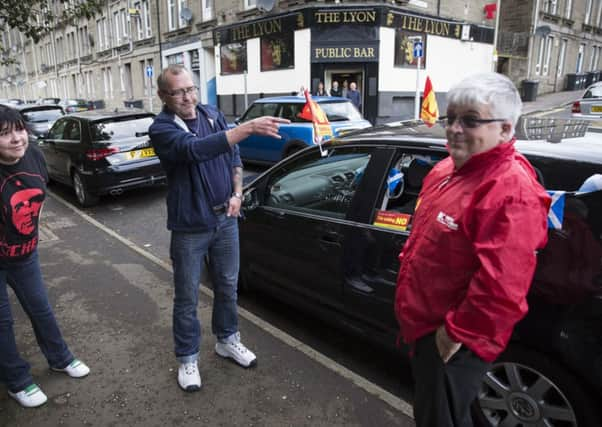John Curtice: The economy matters most to voters


It argues leaving the UK would threaten the country’s future prosperity and its ability to fund good public services. This argument could well be expected to have resonance with voters – unless they feel they do not have much to lose anyway.
Indeed, those who belong to some of the less well-off sections of Scottish society, such as the unemployed and those who live in the most deprived parts of the country, are keener on independence than Scots in general.
Advertisement
Hide AdAdvertisement
Hide AdAcross all of the annual Scottish Social Attitudes surveys since 1999, 42 per cent of the unemployed have said they backed independence when, over the same period, only 29 per cent of all voters expressed that view.
During the last two years over half of the unemployed with a preference have said they would vote Yes.
Meanwhile, according to Ipsos MORI’s most recent poll, Yes support stands at 54 per cent among those living in one of the country’s most deprived neighbourhoods, twice the level among those living in an affluent area.
The most recent attitudes survey found 49 per cent Yes support among those in a deprived area, but just 28 per cent among those living in the least deprived.
At the same time, both the unemployed and those in a relatively deprived area are more likely to think independence would be economically beneficial.
In recent attitudes surveys 37 per cent of the unemployed have felt Scotland’s economy would be better under independence. Just 22 per cent believed it would be worse. In contrast, only 31 per cent of those in employment were optimistic about the economic consequences of independence, while 37 per cent took a pessimistic view.
Only one in three of those in a deprived neighbour-hood feel independence would be bad for Scotland’s economy, compared with over half of those living in one of the more affluent parts of the country. But if the No side’s economic arguments have less resonance among less well-off voters, those voters are not necessarily convinced about the Yes side’s claims about social justice.
Just 12 per cent of the unemployed feel the gap between the rich and poor would be smaller following independence – slightly lower than the equivalent figure of 16 per cent among the employed.
Advertisement
Hide AdAdvertisement
Hide AdSimilarly, only 20 per cent of those in the most deprived areas believe the gap would be smaller, little different from the equivalent figure of 16 per cent among those in the most affluent areas. Even for Scotland’s less well-off voters it is the economic arguments that matter most.
• John Curtice is professor of politics at Strathclyde University